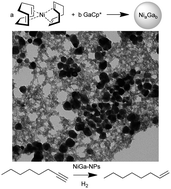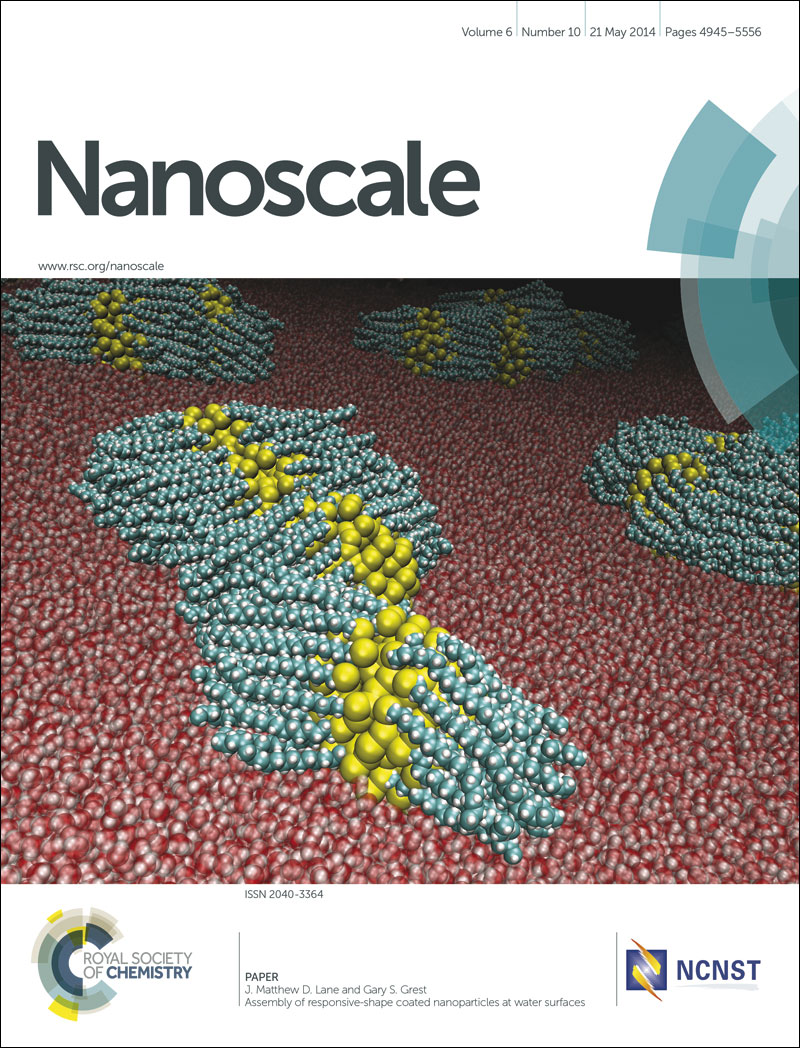Colloidal nickel/gallium nanoalloys obtained from organometallic precursors in conventional organic solvents and in ionic liquids: noble-metal-free alkyne semihydrogenation catalysts†
Abstract
Efforts to replace noble-metal catalysts by low-cost alternatives are of constant interest. The organometallic, non-aqueous wet-chemical synthesis of various hitherto unknown nanocrystalline Ni/Ga intermetallic materials and the use of NiGa for the selective semihydrogenation of alkynes to alkenes are reported. Thermal co-hydrogenolysis of the all-hydrocarbon precursors [Ni(COD)2] (COD = 1,5-cyclooctadiene) and GaCp* (Cp* = pentamethylcyclopentadienyl) in high-boiling organic solvents mesitylene and n-decane in molar ratios of 1 : 1, 2 : 3 and 3 : 1 yields the nano-crystalline powder materials of the over-all compositions NiGa, Ni2Ga3 and Ni3Ga, respectively. Microwave induced co-pyrolysis of the same precursors without additional hydrogen in the ionic liquid [BMIm][BF4] (BMIm = 1-butyl-3-methyl-imidazolium) selectively yields the intermetallic phases NiGa and Ni3Ga from the respective 1 : 1 and 3 : 1 molar ratios of the precursors. The obtained materials are characterized by transmission electron microscopy (TEM), energy dispersive X-ray spectroscopy (EDX), IR, powder X-ray diffraction (PXRD) and atomic absorption spectroscopy (AAS). The single-source precursor [Ni(GaCp*)(PMe3)3] with a fixed Ni : Ga stoichiometry of 1 : 1 was employed as well. In comparison with the co-hydrogenolytic dual precursor source approach it turned out to be less practical due to inefficient nickel incorporation caused by the parasitic formation of stable [Ni(PMe3)4]. The use of ionic liquid [BMIm][BF4] as a non-conventional solvent to control the reaction and stabilize the nanoparticles proved to be particularly advantageous and stable colloids of the nanoalloys NiGa and Ni3Ga were obtained. A phase-selective Ni/Ga colloid synthesis in conventional solvents and in the presence of surfactants such as hexadecylamine (HDA) was not feasible due to the undesired reactivity of HDA with GaCp* leading to inefficient gallium incorporation. Recyclable NiGa nanoparticles selectively semihydrogenate 1-octyne and diphenylacetylene (tolan) to 1-octene and diphenylethylene, respectively, with a yield of about 90% and selectivities of up to 94 and 87%. Ni-NPs yield alkanes with a selectivity of 97 or 78%, respectively, under the same conditions.


 Please wait while we load your content...
Please wait while we load your content...